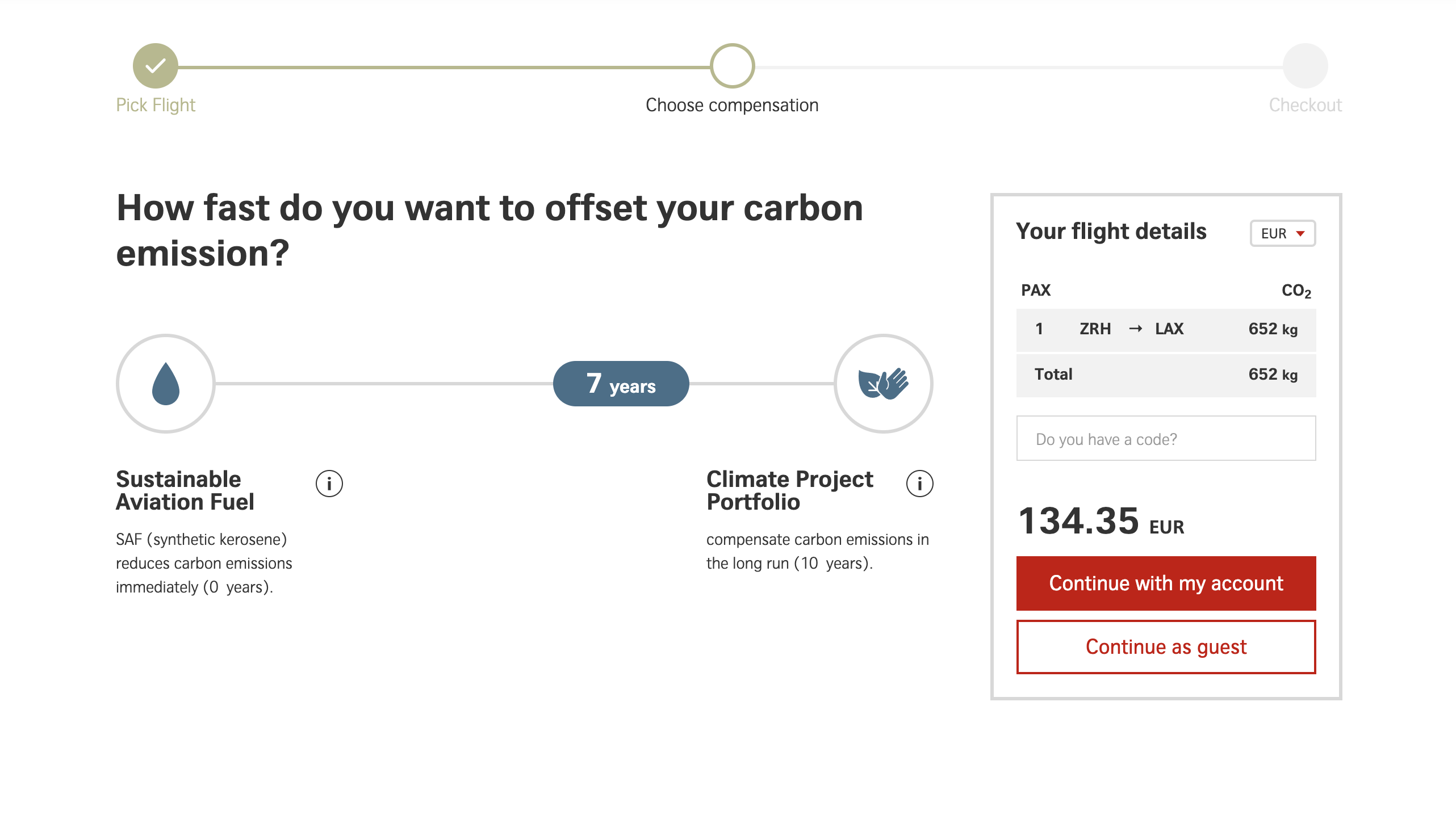When we published our “Flight Shaming Report” just before the pandemic hit, we asked whether there was a gap between intent and behaviour when it comes to passengers and sustainability.
At the time, we identified studies showing that many Americans said they’d fly less for environmental reasons, yet Thanksgiving and Christmas traffic showed no evidence of this.
This phenomenon is well known, and is called the value-action gap or intention-action gap (something you see every year when it comes to New Year’s resolutions).
We can now see that value-action gap in play when it comes to carbon offsets.
A group of Swiss academics carried out an observational field study involving a final sample of 63,520 bookings made with a Swiss airline, which we assume is SWISS, as the researchers talk about the arline serving destinations globally.
Swiss uses the Compensaid scheme run by parent Lufthansa group.
This presents you with a slider giving you the option of offsetting your flight slowly via a “climate project portfolio”, or quickly via SAF.
Using the example of a flight from ZRH – LAX that gives you a price range of €13-€400 – quite a difference.
What the study found was that though many passengers might have good intentions, “the median willingness-to-pay to voluntarily offset a ton of carbon dioxide from flight-related emissions is zero, with the mean willingness-to-pay being around 1 EUR.”
The study found that people who already spend on ancillaries are more willing to add carbon offsets to their final check-out basket. People who order vegetarian meals were also more likely to pay for offsets.
Nevertheless, the authors still concluded that “passengers are largely unwilling to offset their flights, in contrast to many studies that rely on hypothetical behaviour. Our research has various key implications for the theory and practice of offsetting.”
In terms of the practice of offsetting, we’d make two immediate observations.
First of all, if you present a passenger on a ZRH – LAX flight with a sliding scale where they can pay €13-€400, it’s a fair assumption that almost all will go for the cheapest option – or none at all.
This is especially true as the majority of passengers are not so well informed about the ins and outs of SAF or carbon offsetting projects, they just see a cheap and an expensive option (the cheap one meaning they offset in ten years or so).
But it also opens up the wider question of who is responsible for offsets, the passenger or the airline?
Sophie Dekkers, easyJet’s COO said in an interview with Simple Flying last year that it’s the responsibility of the airline, and this Swiss study would seem to back up the fact that this is the way forward.
As Sophie Dekkers said, “we think it’s the cost of doing business nowadays.” Indeed.
If action is left solely to the passenger, then it’s hard to see how net zero targets of 2050 or sooner can be met.
As the researchers point out in their study, the carbon price in the EU-ETS has reached more than €90 in December 2021, quite a contrast with the mean willingness to pay of just €1.

